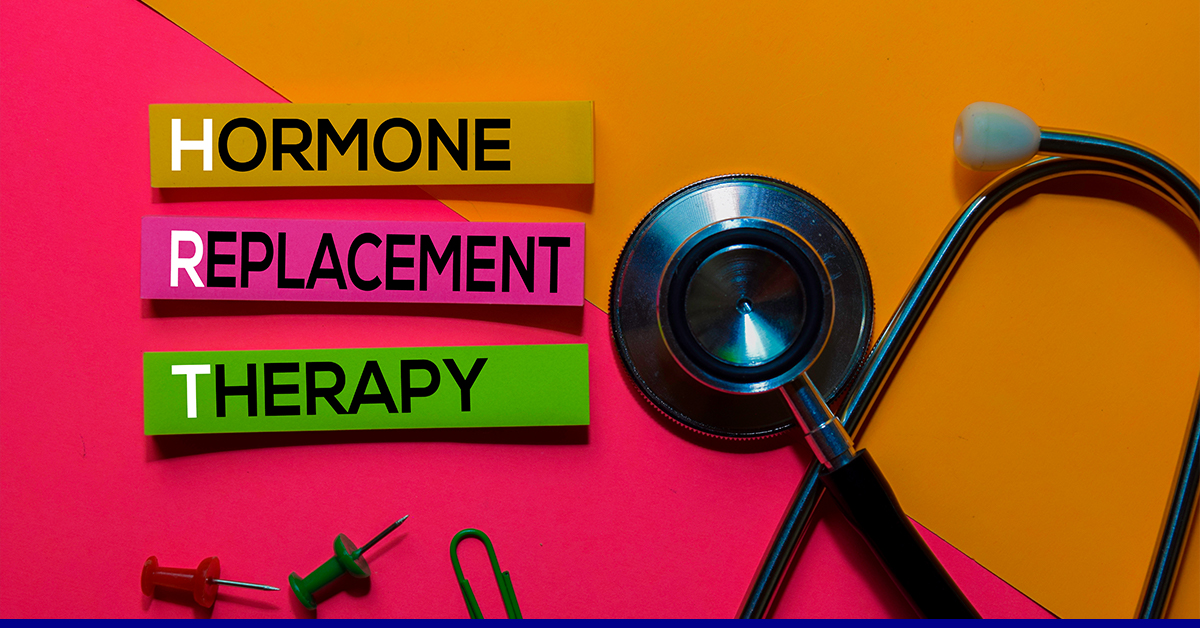
As women grow older, their ovaries shrink in size and stop producing estrogen. In the US alone, around 1.3 million women enter the menopausal stage of their lives annually. This stage is not very simple as it comes with its discomforts in the form of vaginal dryness, insomnia, itching, etc. Hormonal Replacement Therapy helps lessen the symptoms of menopause.
Every woman goes through menopause, a stage in her life where she loses her reproductive ability i.e., her ovaries stop producing the hormones that assist reproduction. As you grow old, your ovaries decrease the production of estrogen, the hormone because of which you get your period. Once the estrogen production becomes irregular, so does the occurrence of your period– until your period stops completely. So, if you have not had your period in the past year, you have entered menopause.
Menopause is natural and happens around the age of fifty. However, some women get their ovaries removed surgically and face the symptoms that come with menopause early.
As the stage of menopause begins, the normal hormone levels in the body become disrupted, and women experience many different symptoms. These symptoms include:

HRT (Hormone Replacement Therapy) is a treatment used in medicine that combats the symptoms caused after a woman reaches menopause. It is also known as menopausal hormone therapy or just hormone therapy.
There are two types of hormone replacement treatments, depending on the hormones administered to the body.
In this case, the therapy includes estrogen only.
Both estrogen and progesterone remain included in this type of therapy. It is prescribed to those women who have not surgically removed their uterus through a hysterectomy.
There are two main ways the hormones are taken.
The hormone is taken as a pill, patch, or injected into the body. In that way, the hormones enter the bloodstream and reach the target tissue or organ.
The hormone is taken as a vaginal cream, ring, suppository, or tablet. The hormone does not enter the bloodstream, and is hence prescribed mainly to women facing vaginal dryness.
There are many advantages of undergoing Hormone Replacement Therapy which helps you manage the symptoms that come with menopause.
While HRT has its advantages, it also comes with a few risks. These include:
The WHI (Women’s Health Initiative Study) examined 16000 menopausal healthy women for eight years and noticed a significant increase in the occurrence of heart diseases and breast cancer owing to the use of hormone replacement therapy.
A common question women are worried about is whether HRT is safe or not. We have listed the pros and cons of HRT for you. It is best to take the hormone doses in a small amount, weigh down whether it is beneficial for you and whether the benefits outweigh the cons or not, then continue. It is best to refer to a doctor who can guide you better. If you have already started therapy, review it with your doctor annually and get mammograms and pelvic exams regularly.
In certain conditions, you should definitely discard the idea of HRT. These include:
There are a number of questions you might have, such as:
Of course, these questions are specific to your health, and consultation may help you answer all your queries. Oftentimes, women find themselves confused as to what their bodies are going through and what they should do about it. The team at Family Medicine Austin helps women make the correct decisions for their bodies, and empowers them through it. If you have any questions or experience any of the symptoms above, book an appointment now.